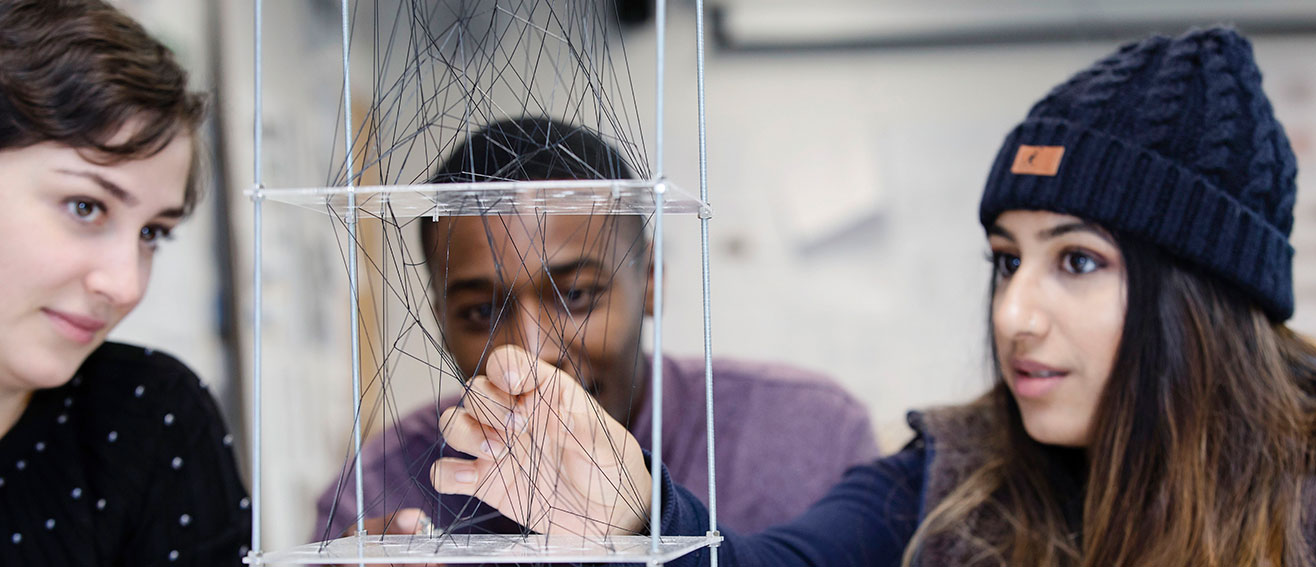
Government, universities and business urged to back new academic field which could change millions of lives
Academics at London South Bank University (LSBU) and University of Washington have defined a completely new academic field, Anthroengineering, which brings together Engineering (science of technology) and Anthropology (science of humanity).
Engineering specialises in technology creation, but can lack understanding of the long-term impact of technology on human biology and culture. That can mean a full understanding of the effects of technology on human biology and culture is only realised after a technology (e.g. mobile phones) has been unleashed on the world.
Mobile phones were invented by engineers, using the science of technology to increase connectivity, making phone numbers specific to a person rather than a house. But by studying the science of humanity, Anthropology has revealed changes in human behaviour and culture because mobile phones have made some people feel more isolated, even when phones are used in groups, as the devices are designed for individual use. If Anthroengineers had been involved in the design of mobile phones, they may have been developed as multi-user devices to reduce isolation and encourage interaction.
Three ways Engineering and Anthropology could merge within Anthroengineering to deliver huge change include:
- Redesigning prosthetic devices – an estimated 190 million people suffer from amputation and require prosthetics (devices that replace missing body parts). A large percentage of these people live in developing countries, far from where prosthetics are designed. That can lead to problems where prosthetic devices fail to meet the cultural demands of the users, such as allowing amputees to kneel for prayer. Anthroengineering could lead to improved and culturally flexible prosthetic designs which could be adapted to fulfil user needs from a wide range of countries and cultures.
- Improving dentistry – the primary function of chewing is to break food into smaller pieces, making it easier to swallow and digest. But current dental models fail to relate tooth shape and how food breaks down during chewing. This means that false teeth (dentures and dental implants) used by hundreds of millions of people do not function as well as they could, leading to decreases in nutrition and quality of life. Rather than purely focusing on contemporary populations, Anthroengineering encourages analysis of how teeth have evolved in humans and non-human primates over millions of years. This could lead to new discoveries which improve denture and dental implant performance during chewing.
- Better designed running shoes – sporting equipment that is used by hundreds of millions of people is constantly being redesigned and improved. But engineers can lack an understanding of the complex movements that occur between the bones in the foot, leading to shoes which are too stiff or too flexible. Anthropologists have advanced our understanding of how human feet have evolved and have debated the design of running shoes or whether we should be running with shoes at all. Anthroengineering could increase our understanding of human foot evolution and enable better designed shoes.
New ideas about the potential of Anthroengineering are set out in a Royal Society article written by Michael Berthaume and Patricia Kramer: Anthroengineering: an independent interdisciplinary field and published in the Interface Focus journal on 13 August 2021. LSBU is taking the lead by creating the world’s first Anthroengineering lab and is currently establishing the world’s first Anthroengineering master’s course.
Michael Berthaume, Deputy Head of the Mechanical Engineering & Design division at LSBU, said, “The potential of the new academic field, Anthroengineering, is enormous. It has the potential to create new theories and methods and make huge advances in scientific discovery, improve our quality of life and help save our planet from climate change.
“Today hundreds of millions of people rely on prosthetic devices, dental implants and running shoes to live and stay healthy, but these technologies could be vastly improved by using Anthroengineering to better account for the different cultures users live in. When researchers tested Anthroengineering, they found it led to the discovery of new solutions to longstanding problems, such as the simplification of the MP3 player to make it easier for gym users fewer and larger buttons.
“That’s why today we are calling on government to create funding streams to support Anthroengineering, universities to fund the creation of Anthroengineering courses and labs and businesses to create positions for Anthroengineers. LSBU is taking the lead by creating the world’s first Anthroengineering lab and is currently establishing the world’s first Anthroengineering master’s course.
“Today, we are witnessing the birth of a new field. We urge government, universities and businesses to join us and help make Anthroengineering a reality that will change human lives for the better.”